He warns that tying Australia’s nuclear-powered submarine project to a South Australian-based industry policy – a nexus central to the Albanese government – cannot work in the long run and will be cast aside at some point by an Australian government.
Downer’s message is that the sooner Australia comes to grips with this reality the better. He attacks the orthodoxy of AUKUS as an Australian industry policy – an orthodoxy accepted by Labor governments in Canberra and Adelaide and the Liberal Party in its formation of AUKUS and its stance ever since.
In an interview with Inquirer, Downer lauds AUKUS as a strategic breakthrough for Australia but says it is burdened by false economics: unsustainably expensive nation-building projects, part of a new “white elephant” syndrome typified by the submarine project and Snowy Hydro 2.0. The opportunity cost of both projects is massive and untenable.
Downer says strategic risk means Australia needs to move fast. That means making the acquisition of operational US Virginia-class nuclear-powered submarines the key priority and ditching the escalating costs, inevitable delays and technological complexity from an unprecedented construction at Adelaide.
“The submarines will never be built in Adelaide because the cost will be prohibitive and the technological challenges are too great to make it worthwhile,” Downer says. “Some government in the future will make the obvious decision and not go ahead with the Adelaide build.

“I think it’s really important allies of the United States make a major contribution to the power balance in the Indo-Pacific region. So having this nuclear-powered capability is important. But if it’s important, we need it as soon as possible, not in 2040 when the world of technology will be completely different.
“So if we’re able to go ahead and buy US Virginia-class submarines, say two or three submarines, that would be good, and hopefully we would be able to get more as time goes on. That is a much better solution than trying to build submarines in Australia. That is just pork-barrelling at its worst. It’s not putting national security first.
“And I am saying this as a South Australian.”
‘Many people in South Australia think this idea of building nuclear-powered submarines is a bit of a fairytale.’
Reviewing the sorry history of the submarine acquisition Downer is critical of both Liberal and Labor governments, in particular, the cross-party South Australian lobby that treated the acquisition as an investment and jobs opportunity for the state.
“I don’t think people in South Australia are as silly as a lot of politicians think they are,” Downer says. “I think many people in South Australia think this idea of building nuclear-powered submarines is a bit of a fairytale and that it will probably never happen, and I also think that’s a popular view.”
AUKUS is a three way US-UK-Australia compact that rests on two pillars – the first is a shared nuclear-powered submarine agenda and the second is upgraded defence technological co-operation. The submarine agenda has two elements – Australia buying three US Virginia-class subs in the early 2030s with an option for two more and a UK-Australia joint venture to build a new AUKUS nuclear-powered submarine, based on a British design, with the UK shipyard delivering the first boat in the late 2030s and the first boat from the South Australian shipyard coming in the early 2040s.
Given the ambition and timeframe, some modifications can be expected.
‘The most complex machines ever built’
When the AUKUS details were announced in March, South Australian Premier Peter Malinauskas said: “The AUKUS submarines will be the most complex machines that have ever been built in human history.” Defence Industry Minister Pat Conroy said: “This is the greatest industrial undertaking ever for Australia.” Comparisons with the initial Snowy Mountains scheme were frequently made.
Downer says getting the US Virginia-class will be “fantastic” for Australia. But the second phase AUKUS subs should be built in Britain. He says: “It would be much cheaper to have them built in the existing British submarine shipyard at Barrow-in-Furness than to have some of them built at Barrow-in-Furness for the Royal Navy and some of them built at Adelaide where we have to set up all the technology to build them here.
“I mean we will get them more cheaply, we will get them more quickly if, in effect, we buy them off the shelf. In truth, setting up separate shipbuilding facilities, that’s so expensive, it’s so slow to do that.
“I wouldn’t normally do an interview like this on the record. But I’ve got so depressed about this. It’s such a huge waste of money when the great challenge for Australia is to improve our productivity. But federal governments – as much Liberal as Labor – are spending eye-watering amounts of money on projects that will yield nothing in terms of improved productivity.
“The politicians aren’t thinking these things through. It’s actually worse than that – they’re not being honest with the public. What do we need the submarines for? To create jobs in South Australia? It creates only 5000 or so jobs, and that’s negligible, there are nearly two million people living in South Australia. It’s the same with Snowy Hydro 2.0. How much will it contribute to cooling the planet? The answer, of course, is nothing. What will be the cost by the time it’s finished, probably $25bn on a project that’s just symbolism.”
The government’s cost estimate for AUKUS is $368bn spread across three decades. The latest cost upgrade for Snowy 2.0 is $12bn, an astonishing rate of escalation with experts saying the final cost could approach $25bn.
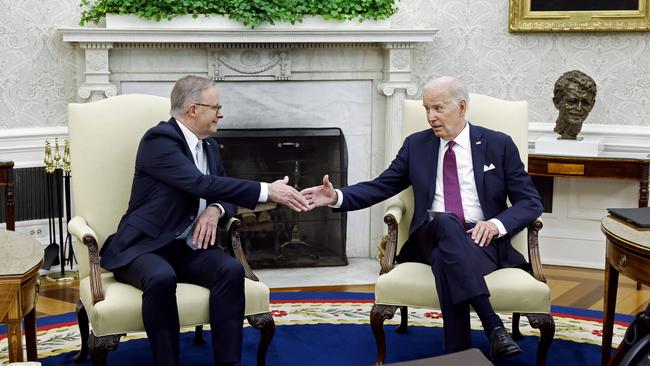
Downer says the premium cost – the extra cost – to build submarines in Australia is a 40 per cent mark-up. Referring to the earlier decision to authorise the French working locally to build a conventional submarine, Downer says: “I asked a senior Australian official what the premium was building in Adelaide rather than buying them off the shelf from Le Havre, where the French have their submarine shipyard.
“He told me it was something like 40 per cent – that’s a 40 per cent premium to build them in Adelaide, plus long time delays. I said to the then South Australian premier, Jay Weatherill, that I thought this would cost the federal government, the taxpayers, the premium was something like $20bn to $30bn, so wouldn’t it be better if we just bought the submarines from the French, have them built in France, and have the federal government give South Australia a subsidy of, say, $10bn compensation that could be spent on the universities, the arts, incentivising hi-tech start-ups, and his reply to me was: ‘Well, I never thought of that.’
“Back then one of the reasons the leadership changed from Tony Abbott to Malcolm Turnbull – not the only reason – was that a lot of South Australian Liberals switched over the issue of building the submarines. And then a South Australian in the form of Christopher Pyne was made defence industry minister. How about that!”
Downer says it was the Liberal Party revolt against Abbott’s vision of buying an “off the shelf” Japanese submarine that turned the project into an Australian industry policy venture. That was the turning point.
“The South Australians were driving this,” Downer says. “It was the Adelaide Advertiser, the state Labor Party, the state Liberal Party, they were all crying out for the submarines to be built in Adelaide. There was a lot of opposition to Abbott’s idea of buying submarines off the shelf.
“But we don’t build F-35s ourselves. We have some offsets. But we don’t build these planes in Australia for good reasons. I mean it would just be too expensive to do it. Well, the same applies to submarines; fighter jets and submarines, these are the most sophisticated technologies. By the way, we didn’t build the Abrams tanks in Australia, they’re imported. It would have been madness to build the Abrams tanks and the F-35s in Australia.
“Of course, the submarines are hugely more expensive than Snowy 2.0 – but I think the politicians in both cases are making decisions without any cost-benefit analysis and without weighing up the opportunity costs. They are operating on the basis that these projects are superficially popular.
“You know, I think the public are on to this. Snowy Hydro has been sold as a kind of latter-day perpetual motion machine. I mean how much per kilowatt is this going to cost? It looks virtuous but it comes at a huge cost. I call it the greatest white elephant project in the world but it will be surpassed by the building of the AUKUS submarines in South Australia. And, of course, they won’t be built on estimate or on time.” From the start the issues with AUKUS were: is Australia up to the challenge? Can it mobilise the all-of-nation sustained effort required? Will the defence budget be expanded to finance the agenda? Can the construction capability be realised? Can Australia eventually operate two types of nuclear-powered subs into the future – the Virginia class and the new British-designed AUKUS submarine?
AUKUS obstacles
For Australia, a business-as-usual approach to AUKUS cannot work. This is the most ambitious linked strategic, technological and economic project in our history. It is spearheaded by the goal of making Australia the world’s seventh nuclear-powered submarine nation. Extending out to the 2050s, AUKUS faces multiple obstacles but brings together a network of powerful vested interests and, while conceived by Scott Morrison, it remains bipartisan. It can work only as a bipartisan project.
This is where Downer’s argument is critical. The Albanese government, as the recent ALP national conference revealed, embraced nuclear propulsion not just in strategic terms but as a vital contributor to industrial revitalisation and a hi-tech, skilled workforce expansion with tangible benefits for construction in both South Australia and Western Australia.
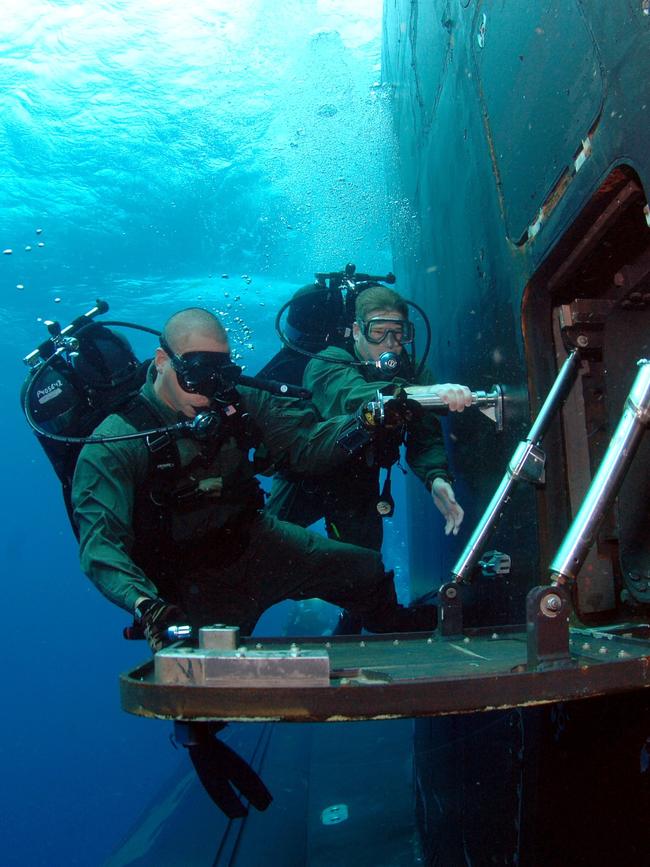
The government must keep the party and the union movement on board. Downer’s thesis plunges a political dagger into this compact. That’s why it will be dismissed as unthinkable by the Albanese government. The reality, however, is that Downer has said publicly what many people are saying privately: that buying the US Virginia-class – as many as possible – is the real priority and that the British-Australian joint submarine construction, in conjunction with the US, must not be seen to define AUKUS, and the Australian industry policy agenda cannot be allowed to detract from the strategic imperative.
Anthony Albanese’s visit to the US and his talks with President Joe Biden offer another early chapter into the political complexities that constitute AUKUS.
On this front, the task facing the Biden administration is to secure the necessary legislation from the US congress to authorise changes to American export control laws to underpin the technological exchanges.
That is largely out of Australia’s hands. But it is critical that congress demonstrates its political commitment to the AUKUS arrangement. With congressional fears that selling Virginia-class subs to Australia only weakens US submarine capability, Biden has offered $US3.4bn ($5.3bn) to buttress US domestic production and called for the AUKUS-related legislation to be passed this year.
Quizzed about AUKUS, Biden says he believes the congress will deliver.
Albanese says Australia will introduce its own legislation to accentuate the technological co-operation critical to AUKUS. He says Australia sees the US as “a very reliable partner” and that AUKUS is about being “equal as partners”. He praises Biden’s extra financial support for US industrial capacity saying it is designed to demonstrate that “any support for Australian industry is not at the expense of US industry”.
That’s not always an easy sell in American politics.
As part of the AUKUS compact Australia previously pledged to contribute $3bn to the US Virginia-class program. Asked whether he may increase this amount, Albanese says Australia’s current support is “appropriate”. Correct answer.
The Biden-Albanese exchanges highlight the extent to which the alliance is deepening in technological terms and broadening in climate change policy and the energy transition.
“We agree that climate change is now the third pillar of the alliance,” Albanese says. He says what the world is dealing with is “an economic transformation that is as significant as the industrial revolution”.
While Albanese says he and Biden both see this as an “enormous opportunity”, the reality is the sheer scale of US financial support for clean energy investment has triggered a global race with the risk that Australia cannot match US incentives and will suffer from US competition.
Downer’s purpose is not to weaken AUKUS but to strengthen it. Yet Australian industrial construction will remain at the heart of AUKUS for several years yet because it is a political imperative. How much that costs, who bears the cost and how serious the delays remain to be seen. But the warnings lights are flashing from the outset.
“Australia is not going to be militarily attacked just on its own,” Downer says.
“If there is a breakdown in security it will be regional. And our contribution through nuclear-powered submarines, through offensive and defensive systems, is important for deterrence and the power balance in the region. If it’s national defence and balancing the power of China that we are concerned about – and we should be concerned about – then we need to get on with this project.”

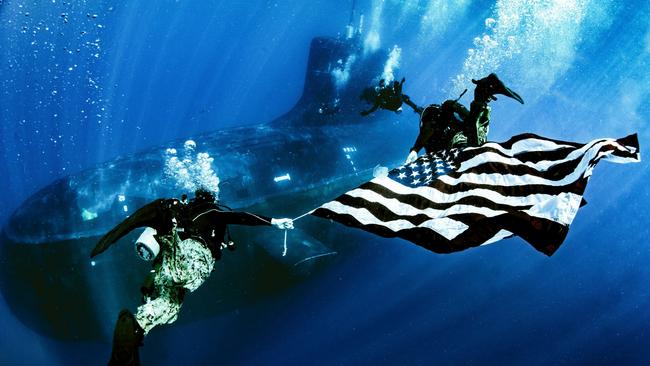

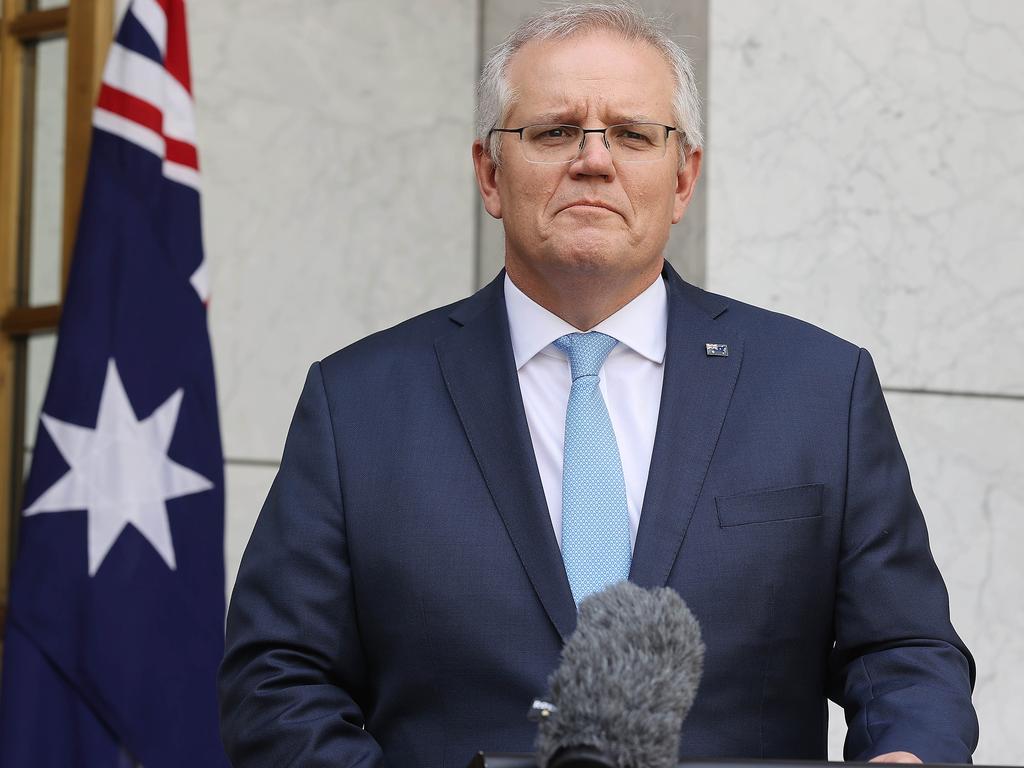

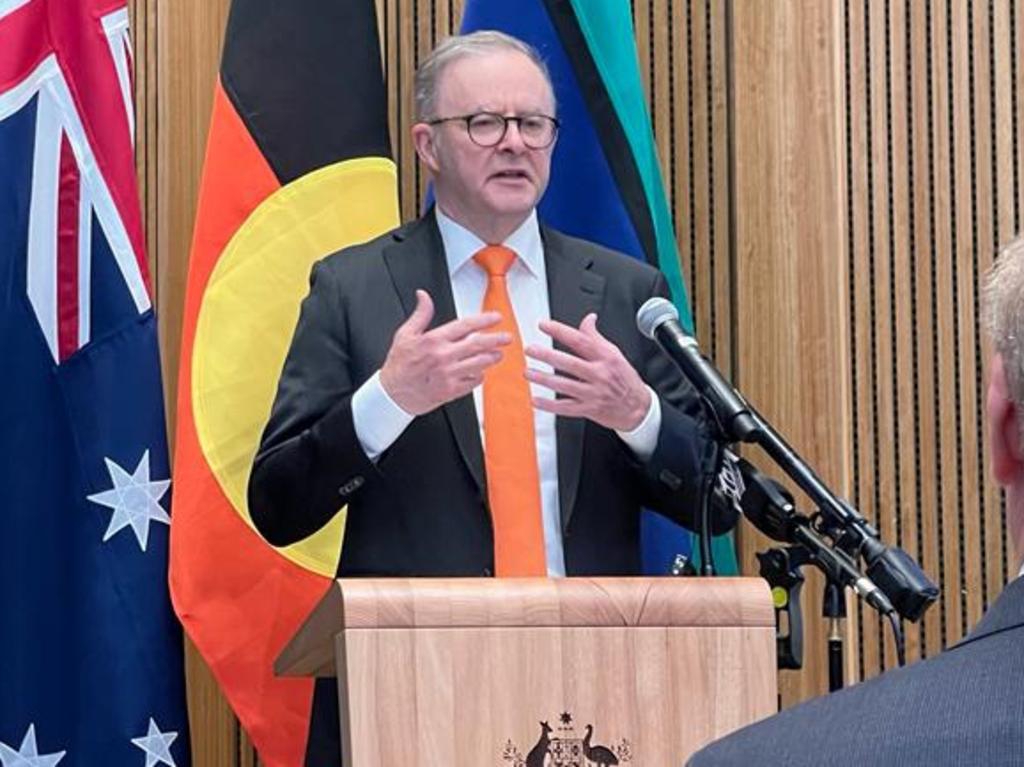

Former Liberal Party foreign minister and son of South Australia, Alexander Downer says the true pathway to making the AUKUS agreement a reality is to abandon the idea of building submarines in Adelaide as a misconceived economic project that is financially untenable and a political fantasy.